Why the Wladfa in Patagonia should be labelled a colonialist venture: a Thread by people of colour in Wales 1/ https://twitter.com/NationCymru/status/1333770699199160327
Geraldine Mac Burney Jones opens her argument in the mentioning of documentation about Patagonia produced in Wales, including this piece by Ian Johnson below: https://nation.cymru/opinion/we-shouldnt-romanticise-the-actions-of-the-welsh-who-colonised-patagonia/ 2/
And this video, as well, by @GarmonabIon with @hanshs4c working with 3/
Additionally, we really, really recommend this piece on Afropunk talking about the dimensions of anti-Blackness+white supremacy in Argentina. There is a huge gap in knowledge on European settler colonialism in #Wales. This effects these conversations
https://afropunk.com/2018/07/argentinas-black-population-has-been-systematically-erased-removed-in-whitewashing-effort/ 4/
https://afropunk.com/2018/07/argentinas-black-population-has-been-systematically-erased-removed-in-whitewashing-effort/ 4/
Given the time period of the Conquest of the Desert [a genocide carried out against indigenous peoples and nations in #Patagonia] combined with experiences of Black Argentinians cannot be divorced from the settlement of #Patagonia by #Welsh settler colonisers. 6/
The first ship from Wales arrived in Patagonia in 1865: right in the middle of this wave of anti-Black+anti-Indigenous genocide and cultural imperialism perpetuated by Argentina- all while chasing [or giving permission to] white settler colonisers to settle indigenous land 7/
"Cultural motives of many of the Welsh migrating to Patagonia are not a minor detail. It is not right to say “whatever the cultural reasons” b/c that is where the difference between settlers+colonists becomes vital." 8/
Let's unpack what the author has said this using the definition below from @The_Red_Nation
It is clear that settlers and colonists are deeply, deeply entwined. The settlers of Wales could not have been facilitated if not for the colonialism. They cannot be separated. 9/
It is clear that settlers and colonists are deeply, deeply entwined. The settlers of Wales could not have been facilitated if not for the colonialism. They cannot be separated. 9/
An imperial power, the Argentine state, seized Patagonia. They undertook a genocide and seized Native territory. The indigenous people by force, were removed. The foreign, invading population in this case were the Welsh settlers. They go hand in hand. 10/
The difference between settlers and colonists does not become vital, unless this is what Tuck and Yang calls a "move to innocence" in decolonisation is not a metaphor. Read it below 11/ https://clas.osu.edu/sites/clas.osu.edu/files/Tuck%20and%20Yang%202012%20Decolonization%20is%20not%20a%20metaphor.pdf
There are 3 types of imperialism
1] Colony: an area under the complete control of another country and settlers from the mother country come to the colony to live.
2] Protectorate: a country that is independent (sovereign), but under the protection of another country. 12/
1] Colony: an area under the complete control of another country and settlers from the mother country come to the colony to live.
2] Protectorate: a country that is independent (sovereign), but under the protection of another country. 12/
3] Sphere of Influence: a region where 1 country dominates trade with that area (the area does not officially belong 2 another country)
In this case, Patagonia was a colony [a form of imperialism]+ the Tehuelche people came under the sphere of influence of the Welsh settler. 13/
In this case, Patagonia was a colony [a form of imperialism]+ the Tehuelche people came under the sphere of influence of the Welsh settler. 13/
The author tries to split hairs on settler colonialism, again, below, as a move to innocence given the anti-Black and anti-Indigenous narratives of the Argentine state. 14/
Jones goes on to write "Y Wladfa, y gwladfa, from the word gwladychfa: in strictu sensu is defined as a settlement." This has been written as a form of differentiation between "settlement" and "colony"- here's a reminder of the definition of settler colonialism. 15/
Here's the English translation of the term "gwladychfa" according to Geiriadur Bangor.
Its 1st definition is colonisation as a noun, colonise as a verb+"settlement". Could this term reflect the innate nature of settler colonialism?
http://geiriadur.bangor.ac.uk/#gwladychfa 16/
Its 1st definition is colonisation as a noun, colonise as a verb+"settlement". Could this term reflect the innate nature of settler colonialism?
http://geiriadur.bangor.ac.uk/#gwladychfa 16/
The Geiriadur Prifysgol Cymru gave this, below, in the order of "colony, settlement", again reflecting the close nature of the terminology. The author doesn't mention this.
http://welsh-dictionary.ac.uk/gpc/gpc.html?gwladfa 17/
http://welsh-dictionary.ac.uk/gpc/gpc.html?gwladfa 17/
Additionally- the author asks if the colonisation of Patagonia [or "settlement"] in the same vein as e.g. British colonisation of Australia (like Argentina, a settler colonial project only possible because of genocide) or India (where there were many, many Welsh people) 18/
In fact, SO many Welsh people colonised Australia, they called an area New South Wales- so the above rhetorical statement is a false dichotomy. 19/
Jones brings up a treaty that has been made with a native chief, but- given the dynamics of the white capitalist settler coloniser project, 2 what extent were the dynamics around this treaty fair and equitable? Was this a last resort? Is this an essentialisation/revisionism? 20/
The argument is made that "This is not only the moral basis but the very legal cornerstone of the Welsh right to inhabit the lands, subject to contract." Wasn't this treaty written during a genocide? 21/
In this article, Dr Lucy Taylor writes "Dr. Lucy Taylor, one of the main sources of the article, proceeds to speculate this attitude as follows: “Fair-dealing and non-violence are thus deployed as a powerful tool that can justify settler colonialism”.
https://blogs.lse.ac.uk/latamcaribbean/2017/09/06/lifting-the-veil-of-kindness-friendship-and-settler-colonialism-in-argentinas-welsh-patagonia/ 22/
https://blogs.lse.ac.uk/latamcaribbean/2017/09/06/lifting-the-veil-of-kindness-friendship-and-settler-colonialism-in-argentinas-welsh-patagonia/ 22/
Far from being benign, then, ‘friendship’ can legitimise colonisation by stripping it of the obvious violence associated with political domination, asset appropriation, and cultural oppression. 23/
Clothed in the warm and fuzzy sensations of camaraderie and mutual help, shared camp fires and fair trade, colonialism becomes veiled in kindness." 24/
"In terms of natives being dispossessed of their land and violently mistreated+killed, the following should be considered: The attitude of the Welsh towards the Conquest of the Desert or Campaña del Desierto, carried out under the command of General Roca." https://nation.cymru/opinion/why-the-wladfa-in-patagonia-shouldnt-be-labelled-colonialist-venture/
If genocides and settler colonialism of the Argentine government had not happened, the Wladfa could not have functioned in the same manner- because of imperialism. 26/
"The Welsh did not subdue the natives, they did not instil Christianity or sweep away their religious beliefs. They just started a journey to access the right to self-determination without interfering in other’s rights. They did not even dispute them." 27/
In this manner, well- isn't the bar low? That they did not 'instill' Christianity? Isn't this- slightly patronising, no? 28/
The author finishes with "Is this not the basis of respect and understanding? Or is this a model of colonial oppression veiled behind a romanticized narrative of friendship?"- not forcing Christianity while being settler colonisers is not the basis of respect+understanding. 29/
She paraphrases a Patagonian man, descendant of Welsh settlers, who asked “Should Patagonian Welsh speakers and descendants feel guilty of our heritage?”
Nobody is asking Patagonian Welsh speakers to feel guilty of their heritage. Nobody is asking non-Patagonian Welsh 30/
Nobody is asking Patagonian Welsh speakers to feel guilty of their heritage. Nobody is asking non-Patagonian Welsh 30/
speakers to feel guilty because of their heritage. We are asking to critically interrogate and dismantle systems of settler colonialism that are used to justify genocide, anti-Blackness and disproportionately benefit some groups more than others *to this day*. 31/
Yes, in short, tl;dr, it should be called a colony, it is a colony, was a colony, and will always be a colony. But, in an age of diversity washing and signal gesturing, discussing the colony as a colony is a "bad thing" 32/
Check out this offer from @henbapur to share their disseration [yn Cymraeg] on/about Patagonia.
https://twitter.com/henbapur/status/1333785501338255360 33/
https://twitter.com/henbapur/status/1333785501338255360 33/
Finally, check out this fantastic article on the same topic
https://www.bbc.co.uk/cymrufyw/53634793 34/
https://www.bbc.co.uk/cymrufyw/53634793 34/

 Read on Twitter
Read on Twitter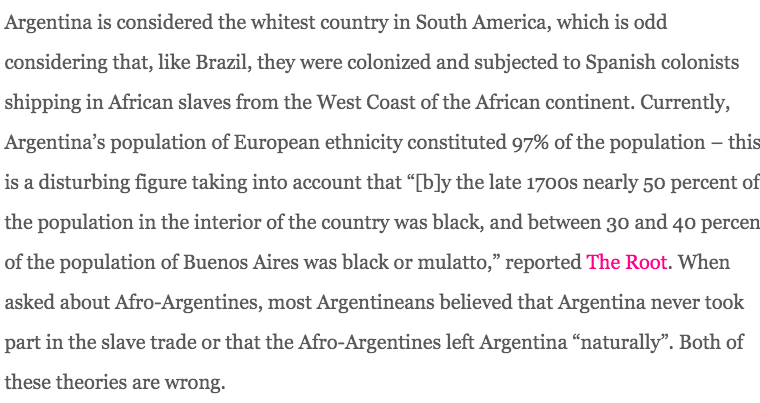
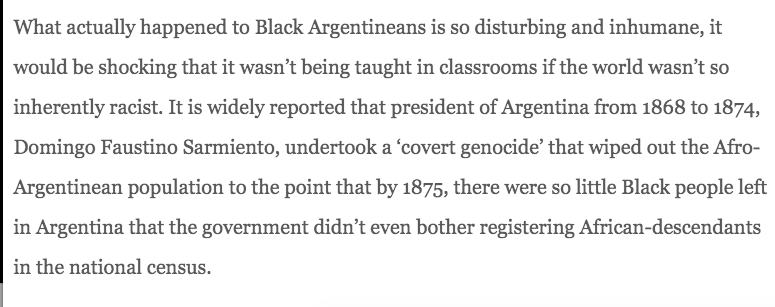
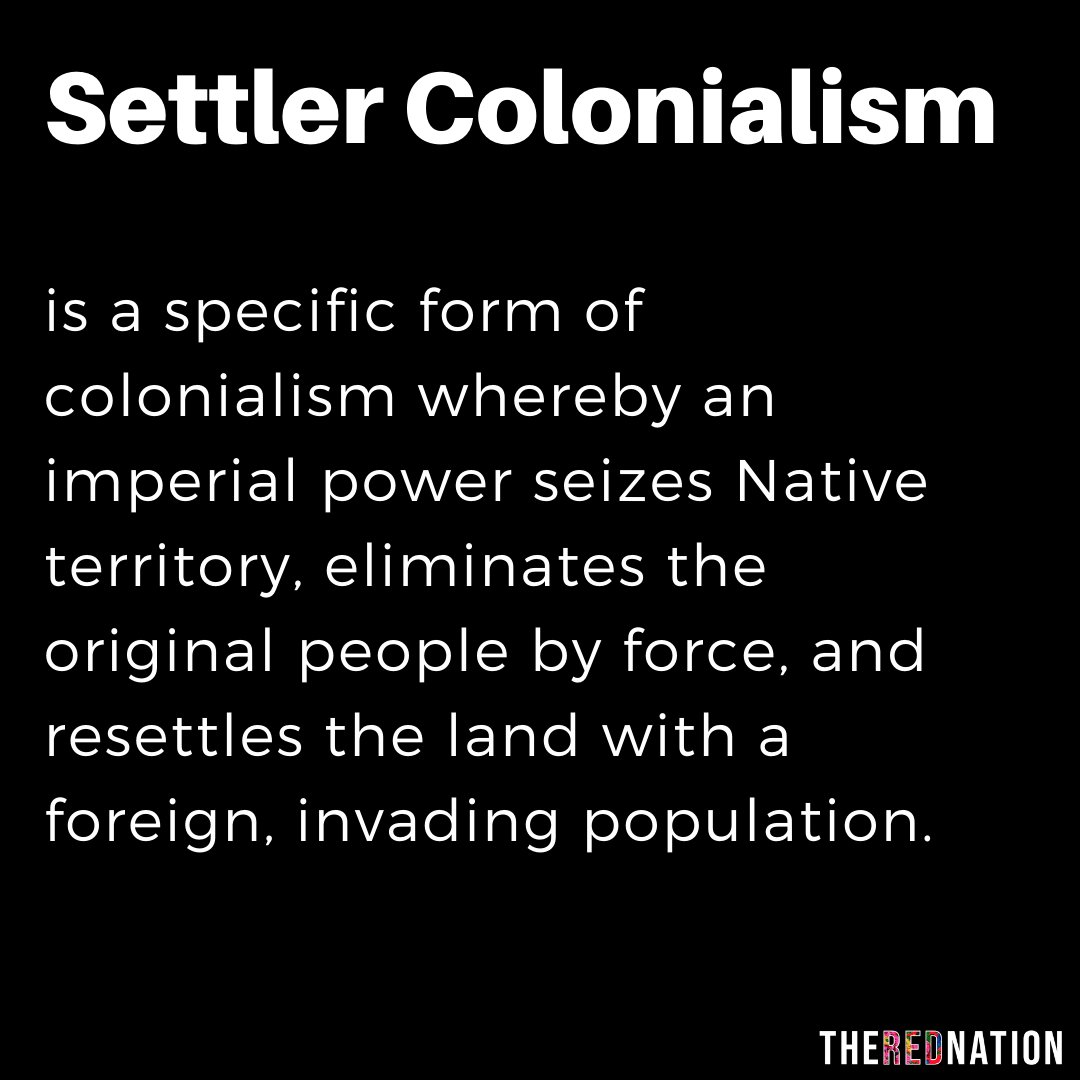

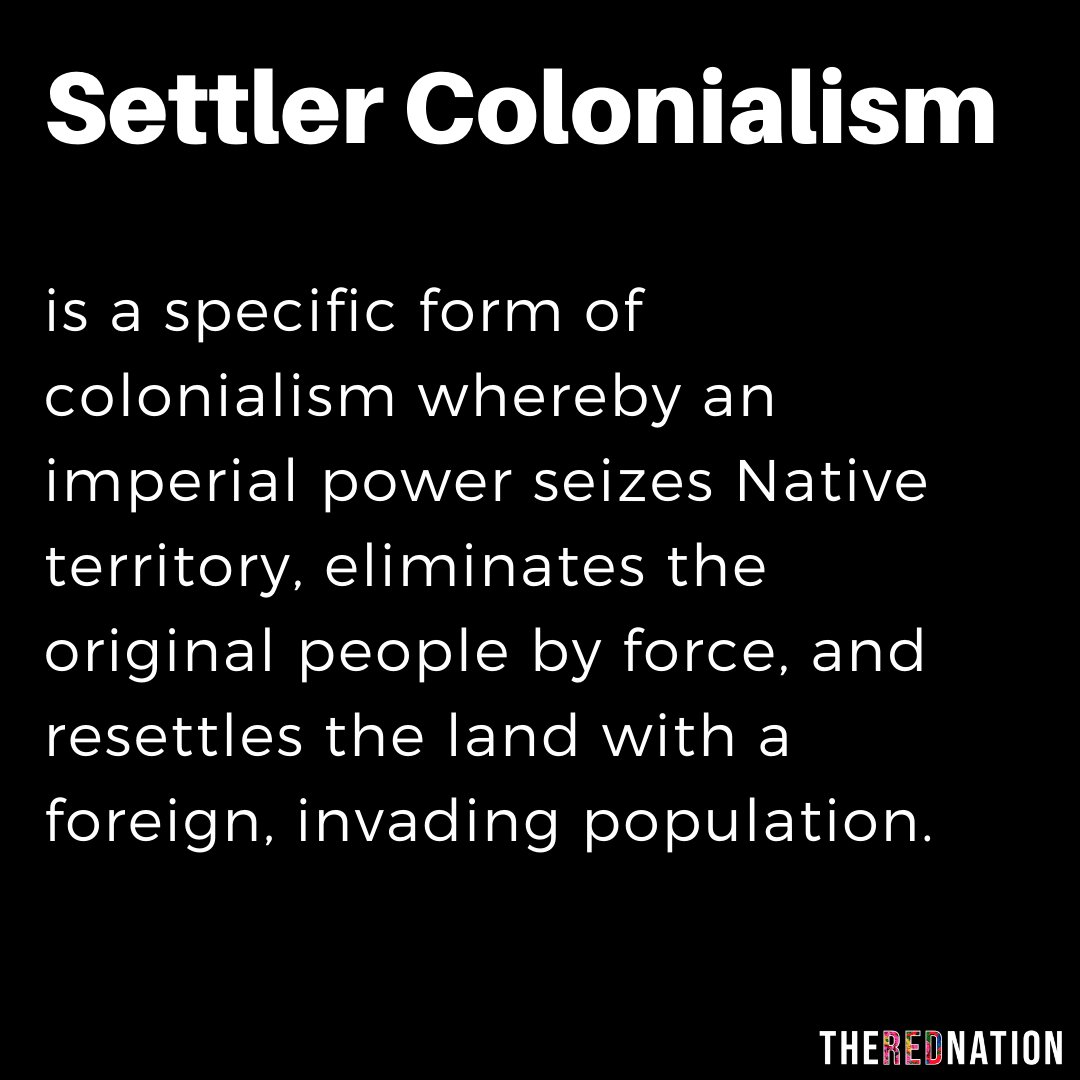
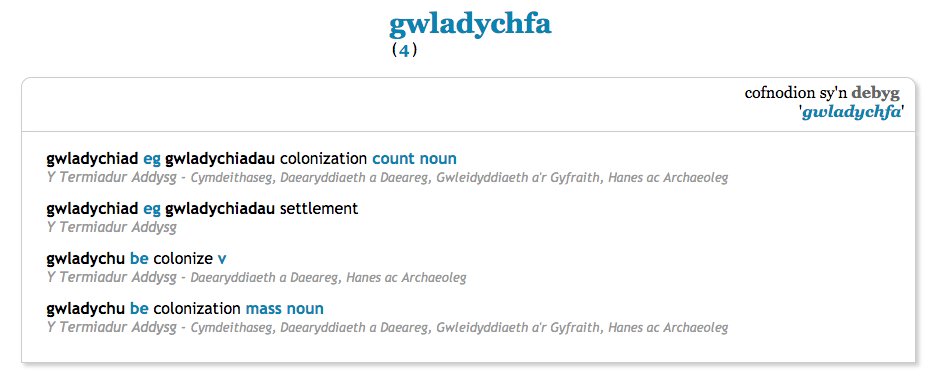
![Additionally- the author asks if the colonisation of Patagonia [or "settlement"] in the same vein as e.g. British colonisation of Australia (like Argentina, a settler colonial project only possible because of genocide) or India (where there were many, many Welsh people) 18/ Additionally- the author asks if the colonisation of Patagonia [or "settlement"] in the same vein as e.g. British colonisation of Australia (like Argentina, a settler colonial project only possible because of genocide) or India (where there were many, many Welsh people) 18/](https://pbs.twimg.com/media/EoK6BvoW8AM_aql.png)


